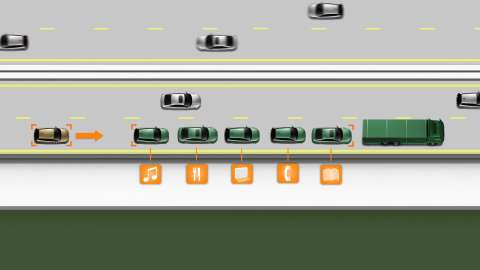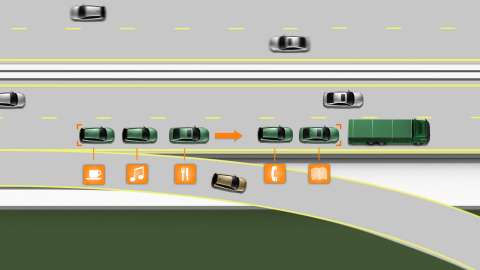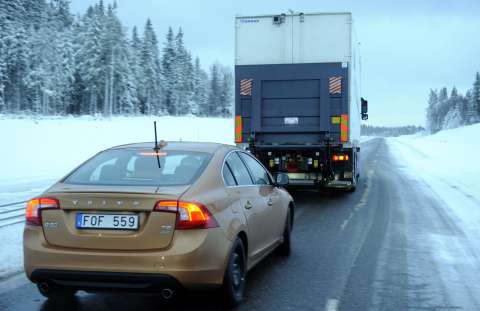|
|
For the first time outside of laboratories and simulators, the EU-financed development teams have trialled the system of linking a series of cars together, controlled by a master professional front-man driver.
"We are very pleased to see that the various systems work so well together already the first time," says Erik Coelingh, engineering specialist at Volvo Cars. "After all, the systems come from seven SARTRE-member companies in four countries. The winter weather provided some extra testing of cameras and communication equipment."
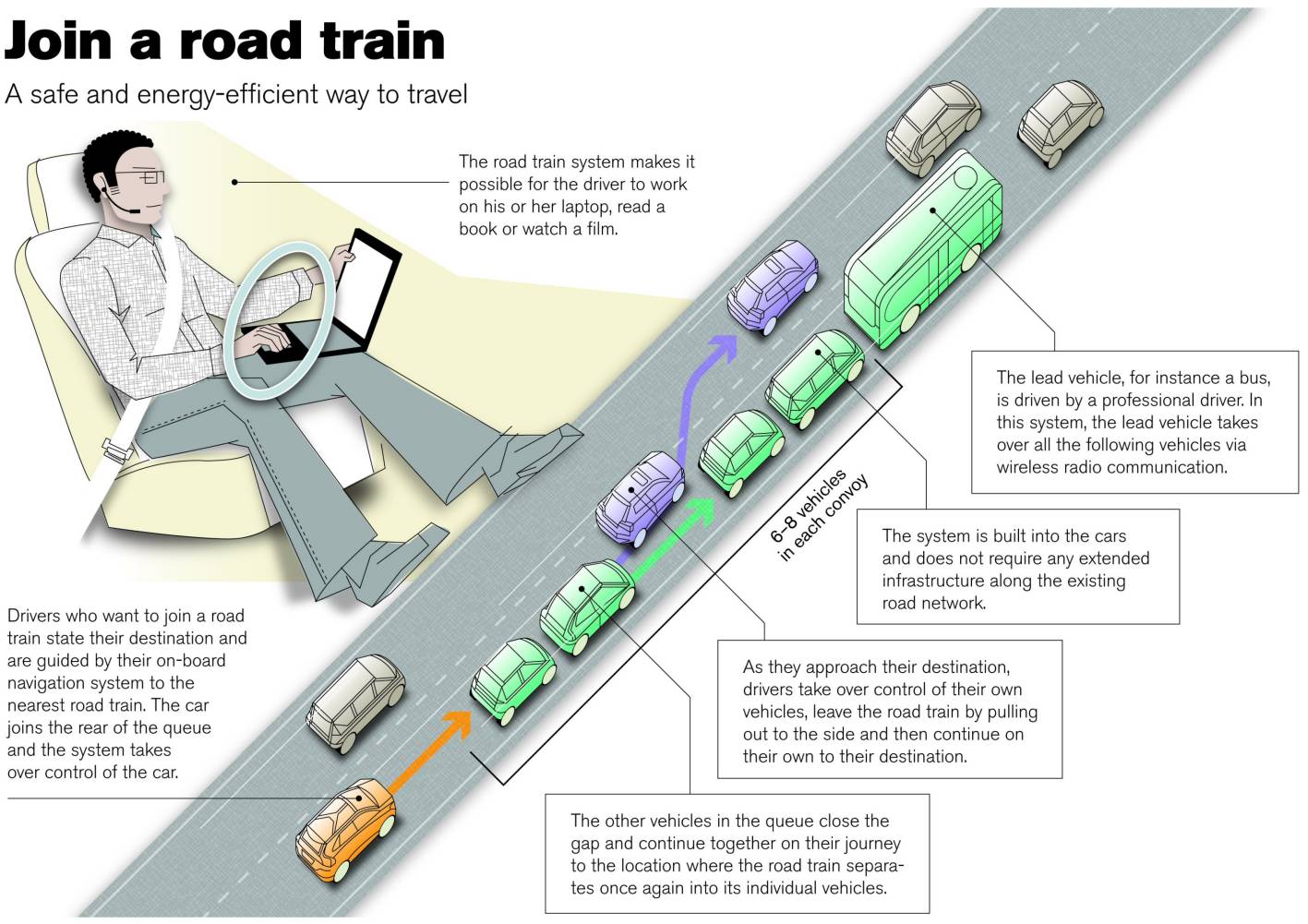
"This is a major milestone for this important European research programme," says Tom Robinson, SARTRE project coordinator, of Ricardo UK Ltd. "Platooning offers the prospect of improved road safety, better road space utilization, improved driver comfort on long journeys and reduced fuel consumption and hence CO2 emissions. With the combined skills of its participating companies, SARTRE is making tangible progress towards the realisation of safe and effective road train technology".
'Looks like we got ourselves a Convoy!' would be a difficult utterance to avoid when partaking in a Vehicle Platoon. Each car in the vehicle group measures the distance, speed and direction of the car at the head, driven by a professional driver. At the same time, each vehicle is totally detached, able to leave the procession at any time.
Whilst part of the platoon however, its hands off the steering wheel time, watch a movie, play music, or partake actively in heated family arguments whilst the SARTRE system controls the cars direction and speed.
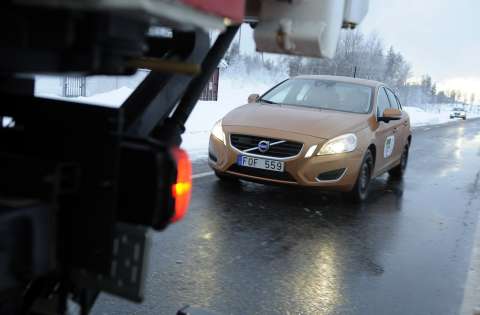
CONTINUED on PAGE 2
|
Secondly, it saves fuel consumption and thus CO2 emissions by up to 20 per cent. It provides the driver with greater convenience and given the vehicles will travel at highway speed with only a few meters separating each, platooning may also relieve traffic congestion.
The technology development is well underway and could most likely go into production in a few years' time. What may take substantially longer is public acceptance as well as legislation where 25 EU governments must pass similar laws.
